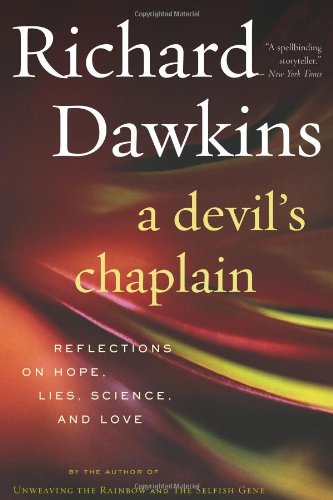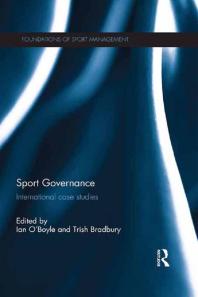SCIENCE A N D S E N S I B I L I T Y In December 2000 I was among those invited by David Miliband MP, then Head of the Prime Minister's Policy Unit and now Minister for School Standards, to write a memo on a particular subject for Tony Blair to read over the Christmas holiday. My brief was Science, Genetics, Risk and Ethics (1.4) and I reproduce my (previously unpublished) contribution here (eliminating Risk and some other passages to avoid overlap with other essays). Any proposal to curtail, in the smallest degree, the right of trial by jury is greeted with wails of affront. On the three occasions when I have been called to serve on a jury, the experience proved disagreeable and dis- illusioning. Much later, two grotesquely over-publicized trials in the United States prompted me to think through a central reason for my distrust of the jury system, and to write it down as Trial By Jury (1.5). Crystals are first out of the box of tricks toted by psychics, mystics, mediums and other charlatans. My purpose in the next article was to explain the real magic of crystals to the readers of a London newspaper, the Sunday Telegraph. At one time it was only the low-grade tabloid newspapers that encouraged popular superstitions like crystal-gazing or astrology. Nowadays some up-market newspapers, including the Telegraph, have dumbed down to the extent of printing a regular astrology column, which is why I accepted their invitation to write Crystalline Truth and Crystal Balls (1.6). A more intellectual species of charlatan is the target of the next essay, Postmodernism Disrobed (1.7). Dawkins' Law of the Conservation of Difficulty states that obscurantism in an academic subject expands to fill the vacuum of its intrinsic simplicity. Physics is a genuinely difficult and profound subject, so physicists need to - and do - work hard to make their language as simple as possible ('but no simpler,' rightly insisted Einstein). Other academics - some would point the finger at continental schools of literary criticism and social science - suffer from what Peter Medawar (I think) called Physics Envy. They want to be thought profound, but their subject is actually rather easy and shallow, so they have to language it up to redress the balance. The physicist Alan Sokal perpetrated a blissfully funny hoax on the Editorial 'Collective' (what else?) of a particularly pretentious journal of social studies. Afterwards, together with his colleague Jean Bricmont, he published a book, Intellectual Impostures, ably documenting this epidemic of Fashionable Nonsense (as their book was retitled in the United States). 'Postmodernism Disrobed' is my review of this hilarious but disquieting book. I must add, the fact that the word 'postmodernism' occurs in the title given me by the Editors of Nature does not imply that I (or they) know what it means. Indeed, it is my belief that it means nothing at all, except in the 6 SCIENCE A N D S E N S I B I L I T Y restricted context of architecture where it originated. I recommend the following practice, whenever anybody uses the word in some other context. Stop them instantly and ask, in a neutral spirit of friendly curiosity, what it means. Never once have I heard anything that even remotely approaches a usable, or even faintly coherent, definition. The best you'll get is a nervous titter and something like, 'Yes I agree, it is a terrible word isn't it, but you know what I mean.' Well no, actually, I don't. As a lifelong teacher, I fret about where we go wrong in education. I hear horror stories almost daily of ambitious parents or ambitious schools ruining the joy of childhood. And it starts wretchedly early. A six-year-old boy receives 'counselling' because he is 'worried' that his performance in mathematics is falling behind. A headmistress summons the parents of a little girl to suggest that she should be sent for external tuition. The parents expostulate that it is the school's job to teach the child. Why is she falling behind? She is falling behind, explains the headmistress patiently, because the parents of all the other children in the class are paying for them to go to external tutors.
چکیده فارسی
SCIENCE A N D S E N S I B I L I T Y در دسامبر 2000، من از جمله کسانی بودم که توسط دیوید میلیبند، نماینده پارلمان، رئیس وقت واحد سیاست نخست وزیر و اکنون وزیر استانداردهای مدارس دعوت شده بودم تا یادداشتی در مورد موضوعی خاص برای تونی بلر بنویسم تا در تعطیلات کریسمس بخواند. . خلاصه من علم، ژنتیک، ریسک و اخلاق (1.4) بود و سهم خود (که قبلاً منتشر نشده بود) را در اینجا بازتولید می کنم (حذف ریسک و برخی قسمت های دیگر برای جلوگیری از همپوشانی با مقالات دیگر). هر پیشنهادی برای محدود کردن حق محاکمه توسط هیئت منصفه با ناله های توهین آمیز مورد استقبال قرار می گیرد. در سه موردی که برای حضور در هیئت منصفه فراخوانده شدم، این تجربه ناخوشایند و ناامیدکننده بود. مدتها بعد، دو محاکمهای که بیش از حد علنی شده بود در ایالات متحده مرا بر آن داشت تا به دلیل اصلی بیاعتمادی خود به سیستم هیئت منصفه فکر کنم و آن را با عنوان Trial By Jury (1.5) بنویسم. کریستال ها ابتدا از جعبه ترفندهای روانشناسان، عارفان، مدیوم ها و سایر شارلاتان ها خارج می شوند. هدف من در مقاله بعدی این بود که جادوی واقعی کریستال ها را برای خوانندگان یک روزنامه لندنی، ساندی تلگراف، توضیح دهم. زمانی فقط روزنامه های تبلوید درجه پایین بودند که خرافات رایجی مانند نگاه کریستال یا طالع بینی را تشویق می کردند. امروزه برخی از روزنامههای معروف، از جمله تلگراف، چاپ ستونهای طالع بینی معمولی را کمکم کردهاند، به همین دلیل است که من دعوت آنها را برای نوشتن حقیقت کریستالی و توپهای بلورین (1.6) پذیرفتم. گونه روشنفکرتر شارلاتان هدف مقاله بعدی است، پست مدرنیسم بریده شده (1.7). قانون حفاظت از دشواری داوکینز بیان می کند که تاریک گرایی در یک موضوع دانشگاهی گسترش می یابد تا خلاء سادگی ذاتی آن را پر کند. فیزیک موضوعی واقعاً دشوار و عمیق است، بنابراین فیزیکدانان باید - و انجام دهند - سخت تلاش کنند تا زبان خود را تا حد امکان ساده کنند (اینشتین به درستی اصرار کرد "اما نه ساده تر". سایر دانشگاهیان - برخی انگشت اتهام را به سمت مکاتب نقد ادبی و علوم اجتماعی قارهای نشانه میگیرند - از چیزی رنج میبرند که پیتر مدوار (من فکر میکنم) آن را حسادت فیزیک مینامد. آنها می خواهند عمیق فکر شوند، اما موضوع آنها در واقع نسبتاً آسان و کم عمق است، بنابراین باید آن را به زبان بیاورند تا تعادل را اصلاح کنند. آلن سوکال، فیزیکدان، فریب خندهداری را در سرمقاله «مجموعه» (چه چیز دیگری؟) یک مجله پرمدعا در مطالعات اجتماعی مرتکب شد. پس از آن، او به همراه همکارش ژان بریکمونت، کتابی به نام تحریفات فکری منتشر کرد، که با مهارت این همه گیری مزخرفات مد روز را مستند می کند (همانطور که کتابشان در ایالات متحده عنوان مجددی داشت). «پست مدرنیسم بریده شده» نقد من درباره این کتاب خنده دار اما نگران کننده است. باید اضافه کنم، این واقعیت که کلمه «پست مدرنیسم» در عنوانی که ویراستاران نیچر به من دادهاند، به این معنا نیست که من (یا آنها) معنی آن را میدانیم. در واقع، اعتقاد من این است که اصلاً معنایی ندارد، مگر در 6 SCIENCE A N D S E N S I B I L I T Y بافت محدود معماری که در آن منشأ گرفته است. من تمرین زیر را توصیه می کنم، هر زمان که کسی از کلمه در زمینه دیگری استفاده می کند. فوراً آنها را متوقف کنید و با یک روحیه خنثی از کنجکاوی دوستانه، معنی آن را بپرسید. هرگز چیزی نشنیده ام که حتی از راه دور به یک تعریف قابل استفاده یا حتی کمی منسجم نزدیک شود. بهترین چیزی که به دست می آورید یک تیتر عصبی و چیزی شبیه به "بله موافقم، این کلمه وحشتناکی است، نه، اما می دانید منظور من چیست." خوب نه، در واقع، من این کار را نمی کنم. به عنوان یک معلم مادام العمر، نگران این هستم که در آموزش کجا اشتباه می کنیم. تقریباً هر روز داستان های ترسناکی از والدین جاه طلب یا مدارس جاه طلب می شنوم که لذت دوران کودکی را از بین می برند. و بدبختانه زود شروع می شود. یک پسر شش ساله "مشاوره" دریافت می کند زیرا "نگران" است که عملکردش در ریاضیات عقب بماند. یک مدیر مدرسه والدین یک دختر بچه را احضار می کند تا به او پیشنهاد دهد که او را برای تحصیل خارجی بفرستند. والدین می گویند که وظیفه مدرسه آموزش دادن به کودک است. چرا او عقب می افتد؟ مدیر مدرسه با حوصله توضیح می دهد که او عقب می نشیند، زیرا والدین همه بچه های دیگر کلاس هزینه رفتن آنها به معلمان خارجی را می پردازند.
ادامه ...
بستن ...
Darwin was less than half joking when he coined the phrase Devil's Chaplain in a letter to his friend Hooker in 1856. What a book a Devil's Chaplain might write on the clumsy, wasteful, blundering low and horridly cruel works of nature. A process of trial and error, completely unplanned and on the massive scale of natural selection, can be expected to be clumsy, wasteful and blundering. Of waste there is no doubt. As I have put it before, the racing elegance of cheetahs and gazelles is bought at huge cost in blood and the suffering of countless antecedents on both sides. Clumsy and blundering though the process undoubtedly is, its results are opposite. There is nothing clumsy about a swallow; nothing blundering about a shark. What is clumsy and blundering, by the standards of human drawing boards, is the Darwinian algorithm that led to their evolution. As for cruelty, here is Darwin again, in a letter to Asa Gray of 1860: I cannot persuade myself that a beneficent and omnipotent God would have designedly created the Ichneumonidae with the express intention of their feeding within the living bodies of Caterpillars. Darwin's French contemporary Jean Henri Fabre described similar behaviour in a digger wasp, Ammophila: It is the general rule that larvae possess a centre of innervation for each segment. This is so in particular with the Grey Worm, the sacrificial victim of the Hairy Ammophila. The Wasp is acquainted with this anatomical secret: she stabs the caterpillar again and again, from end to end, segment by segment, ganglion by ganglion.1 Darwin's Ichneumonidae, like Fabre's digger wasps, sting their prey not to kill but to paralyse, so their larvae can feed on fresh (live) meat. As 8 A D E V I L ' S C H A P L A I N Darwin clearly understood, blindness to suffering is an inherent con- sequence of natural selection, although on other occasions he tried to play down the cruelty, suggesting that killing bites are mercifully swift. But the Devil's Chaplain would be equally swift to point out that if there is mercy in nature, it is accidental. Nature is neither kind nor cruel but indifferent. Such kindness as may appear emerges from the same imperative as the cruelty. In the words of one of Darwin's most thoughtful successors, George C. Williams2, With what other than condemnation is a person with any moral sense supposed to respond to a system in which the ultimate purpose in life is to be better than your neighbor at getting genes into future generations, in which those success- ful genes provide the message that instructs the development of the next generation, in which that message is always 'exploit your environment, includ- ing your friends and relatives, so as to maximize our genes' success', in which the closest thing to a golden rule is 'don't cheat, unless it is likely to provide a net benefit'? Bernard Shaw was driven to embrace a confused idea of Lamarckian evolution purely because of Darwinism's moral implications. He wrote, in the Preface to Back to Methuselah: When its whole significance dawns on you, your heart sinks into a heap of sand within you. There is a hideous fatalism about it, a ghastly and damnable reduction of beauty and intelligence, of strength and purpose, of honor and aspiration. His Devil's Disciple was an altogether jollier rogue than Darwin's Chaplain. Shaw didn't think of himself as religious, but he had that childlike inability to distinguish what is true from what we'd like to be true. The same kind of thing drives today's populist opposition to evolution3: The most evolution could produce would be the idea that 'might makes right.' When Hitler exterminated approximately 10 million innocent men, women, and children, he acted in complete agreement with the theory of evolution and in complete disagreement with everything humans know to be right and wrong ... If you teach children that they evolved from monkeys, then they will act like monkeys. An opposite response to the callousness of natural selection is to exult in it, along with the Social Darwinists and - astonishingly - H. G. Wells. The New Republic, where Wells outlines his Darwinian Utopia, contains some blood-chilling lines:4 9 SCIENCE A N D S E N S I B I L I T Y And how will the New Republic treat the inferior races? How will it deal with the black? ... the yellow man? ... the Jew? ... those swarms of black, and brown, and dirty-white, and yellow people, who do not come into the new needs of efficiency? Well, the world is a world, and not a charitable institution, and I take it they will have to go ... And the ethical system of these men of the New Republic, the ethical system which will dominate the world state, will be shaped primarily to favour the procreation of what is fine and efficient and beautiful in humanity - beautiful and strong bodies, clear and powerful minds ... And the method that nature has followed hitherto in the shaping of the world, whereby weakness was prevented from propagating weakness ... is death ... The men of the New Republic ... will have an ideal that will make the killing worth the whi
ادامه ...
بستن ...










